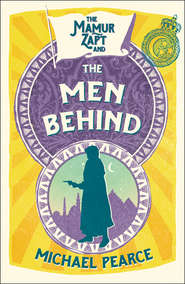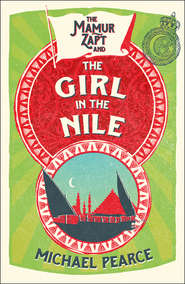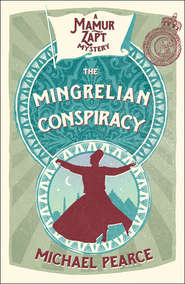По всем вопросам обращайтесь на: info@litportal.ru
(©) 2003-2024.
✖
The Mamur Zapt and the Camel of Destruction
Автор
Год написания книги
2019
Настройки чтения
Размер шрифта
Высота строк
Поля
‘Alone? Certainly not!’ Mr Istaq was shocked.
‘I do not wish to trouble Mr Fingari, you see.’
‘Well, no, there’s been enough trouble as it is.’
‘And he’s very frail, so I thought–’
‘Well, yes, but – alone! What can you be thinking of, effendi? She is a decent Muslim girl.’
‘It was just that in the circumstances–’
‘Why do you want to see her, anyway, effendi? What can a woman know? Why not ask me? I will do what I can to help you.’
‘Well, thank you, it is very kind of you, Mr Istaq. But then, you see, you would not be able to help me in quite the same way. After all, though a relative, you did not actually live in the house and therefore would not know–’
‘Yes, but alone! With a man! No, really, effendi–’
Mr Istaq, hot, bothered and worried in equal proportions, took some time to be persuaded. He was, when all was said and done, the relative who had shown Owen the body and felt that he bore some responsibility for the consequences.
But then, he was also the closest and most senior male relative and, given old Mr Fingari’s frailty, it all devolved on him anyway. He was a simple journeyman tailor and all this was a bit much for him.
He knew, however, what was proper. And it was not proper to let his niece talk to strange men. Aisha was inclined to be headstrong, anyway. His brother had always given her too much scope. That was all very well, things were not, perhaps, what they used to be, but who would want to marry a woman used to having her own way? And it was likely to be him, Istaq, who would be left with the problem of marrying her off.
In the end a compromise was reached. Owen was allowed to interview her but in Mr Istaq’s presence.
Owen had always known this was the most likely outcome. It was customary in Egypt for female witnesses to be interviewed through their father or husband or a near male relative. He had, however, hoped to avoid it in this case.
The girl appeared, heavily veiled and dressed from head to foot in decent, shapeless black. All that could be seen of her was her eyes, which were suitably cast down.
‘Miss Fingari, I am sorry to trouble you further in such sad circumstances but there are one or two things I would like to ask you.’
The girl moved slightly and Mr Istaq cleared his throat.
‘You saw your brother every day, of course?’
Mr Istaq looked at Aisha, hesitated and then reluctantly admitted that this was so.
‘Had you noticed a change of spirits in him lately?’
‘No,’ said Mr Istaq confidently.
‘Had he seemed at all worried?’
‘No.’
‘Perhaps a little depressed occasionally?’
‘No.’
The girl had not yet spoken.
‘I ask,’ said Owen, ‘because I am wondering what could have brought him to this sad state of mind?’
He put it as a question and then waited, looking inquiringly directly at the girl.
She did not reply. Mr Istaq, not quite sure how to respond, muttered uncertainly: ‘No sad state’.
‘Had he ever talked to you about problems at work?’
‘Certainly not!’ said Mr Istaq, shocked.
‘Or problems not at work. Not at home, of course, but in his private life?’
‘No,’ said Mr Istaq firmly.
‘I wonder,’ said Owen, ‘if there had been any changes lately in his way of life?’
‘No,’ said Mr Istaq.
‘But that is not true, Miss Fingari,’ said Owen, still addressing himself to the girl although she had not yet spoken. ‘Everyone knows that there had been changes in his way of life. He had had a lot done to the house, for a start.’
‘No changes!’ snapped Mr Istaq, caught off balance.
‘But there had been!’ said Owen, wide-eyed. ‘The man-dar’ah – new marble! And I think the better of him for it. So often people rise in the world and forget their family. But was Osman Fingari like that?’
‘No,’ said the girl firmly.
‘No,’ echoed Mr Istaq.
‘Everyone says he loved his parents.’
‘He did,’ said the girl.
‘He did,’ said Mr Istaq.
‘But they were old, Miss Fingari, and he would not have wanted to trouble them. So did he discuss his problems with you, I wonder?’
‘No,’ said Mr Istaq.
The girl said nothing. Her eyes, though, were now raised and she was looking at Owen directly.
‘You see, when men are brought to such a desperate pass, when they are in a state so desperate that they can contemplate a thing like this, it is often because they feel themselves quite alone. Did Osman Fingari feel himself so alone, I ask myself.’
The girl’s eyes filled with tears.
‘Was there no one he could turn to? No one in the whole wide world?’
‘Why do you ask these things,’ the girl suddenly burst out. ‘What business is it of yours? What do you care about my brother?’











